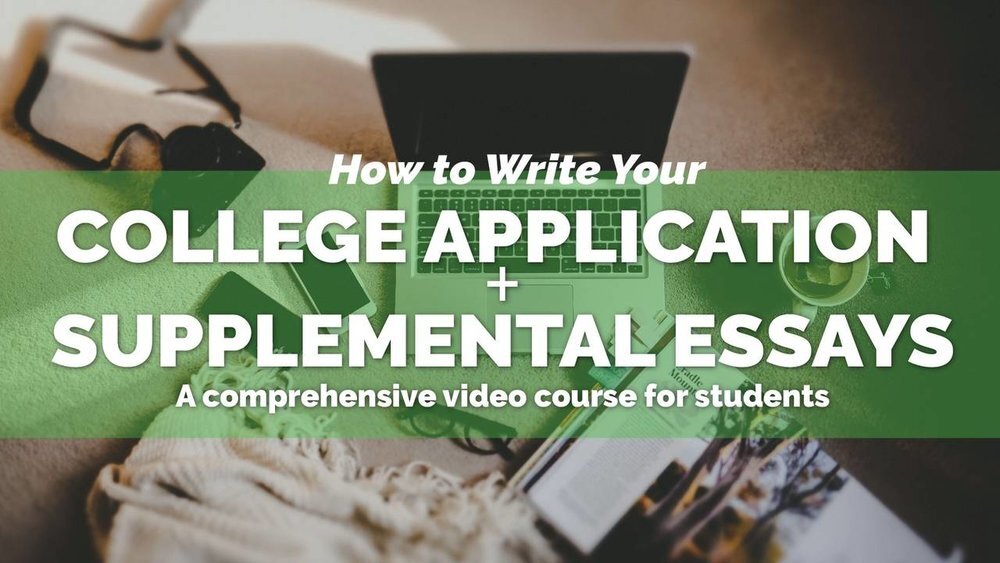Boasting a robust, high-quality array of research opportunities, a close-knit campus experience, and small classes, Tulane is a great fit for students with equal enthusiasm for demanding academic work and community engagement. And it just so happens those are solid values to reflect in your Tulane supplemental essays. Don’t exactly know how to get started? That’s what we’re here for.
But before diving into the prompts, check out Tulane’s website to get a better sense of what it’s looking for. You’ll find an extensive, by-the-numbers look at Tulane’s offerings, from enrollment and tuition statistics to student life and financial aid information, on its Common Data Set. For insights into Tulane’s values, read its mission statement to learn more about how the school envisions its role and how it wants to grow and evolve.
What are the Tulane University supplemental essay prompts?
Tulane University Supplemental Essay Prompt
Optional: Describe why you are interested in joining the Tulane community. Consider your experiences, talents, and values to illustrate what you would contribute to the Tulane community if admitted.
This statement should be 250 words at most; however, it is neither necessary nor expected that you reach this maximum length. We strongly encourage you to focus on content and efficiency rather than word count. While submitting this prompt is optional, we recommend that all applicants do so. (50-250 words) (optional)
How to Write Each Supplemental Essay Prompt for Tulane University
how to write Tulane university Supplemental Essay Prompt #1
(Optional): Describe why you are interested in joining the Tulane community. Consider your experiences, talents, and values to illustrate what you would contribute to the Tulane community if admitted.
This statement should be 250 words at most; however, it is neither necessary nor expected that you reach this maximum length. We strongly encourage you to focus on content and efficiency rather than word count. While submitting this prompt is optional, we recommend that all applicants do so.
(50-250 words)
While this prompt is technically optional, we’d recommend writing it (especially since Tulane also recommends writing it), and using it to demonstrate why you and Tulane fit together.
You can treat the first part of the prompt (“why you are interested in joining the Tulane community”) as a “Why us?” essay, and the second part (“your experiences, talents, and values to illustrate what you would contribute to the Tulane community if admitted”) as a “How will you contribute” essay.
For detail on “Why us?” essays, we recommend checking out this complete guide on how to write the “Why us?” essay—paying close attention to the “Why Cornell” and “Why Penn” examples, which are our favorites.
Here’s the short version of how to write the “Why us?” essay:
Spend 1 hr+ researching 10+ reasons why Tulane might be a great fit for you (ideally 3-5 of the reasons will be unique to Tulane and connect back to you).
Make a copy of this chart to map out your college research.
Outline how you will (concisely) use those details to show why you and Tulane belong together.
As you write, try to avoid these common mistakes:
Six Common Mistakes Students Make on “Why Us?” Essays
Mistake #1: Writing about the school's size, location, reputation, weather, or ranking
Mistake #2: Simply using emotional language to demonstrate fit
Mistake #3: Screwing up the mascot, stadium, team colors or names of any important people or places on campus
Mistake #4: Parroting the brochures or website language
Mistake #5: Describing traditions the school is well-known for
Mistake #6: Thinking of this as only a "Why them" essay
For the “How will you contribute” portion, there’s a guide + examples with analysis at that link, but here’s the short version.
Essentially, a way to think of this kind of prompt is that it’s a combo of “community/identity/background” and “why us” prompts: use some of your response to show how you’ve become who you are, and then show how those experiences shape what you will bring to the college through linking to specific opportunities/groups/details. Connect your unique upbringing, in a very broad sense of the word, with what the school offers and how you will make a great team.
STEP 1: BRAINSTORM (ALL ABOUT YOU).
Do the “If You Really, Really Knew Me” Exercise.
STEP 2: RESEARCH THE COLLEGE (LEARN ALL ABOUT THEM).
Make a copy of the “Why us” Essay Chart 2.0, research the school you’re writing your essay for, and fill in the first two columns. (This is the same chart mentioned above.)
Once you’ve done these exercises, you’ll have a better sense of:
YOU: A bunch of different talents/skills/identities/qualities that you’ll bring to a college campus, and
THEM: A variety of programs/courses/clubs/affinity groups that your college offers.
STEP 3: CONNECT YOU… TO THEM (I.E., THE COLLEGE YOU’RE APPLYING TO).
Make connections between what the school offers and what you’re interested in.
Here’s an essay written for Columbia that would also work well for this prompt, though for Tulane, it could be tweaked to have slightly more “why are you interested in joining Tulane” detail (but with space for 50 more words, that shouldn’t be a problem):
Example:
At family dinners over gnocchi and arancini, my grandpa would always ask my two older brothers how their education and sports were going. I’d wait for my turn, but the question was never directed my way. In contrast, my grandma always tells me how thankful she is that I’m able to get an education of my own. She frequently mentions how she regrets never getting an education. I pursue my education with a fire within me to do what she wasn’t allowed to. During the summer of 2021, I realized that I could impact other girls in a similar way by writing a children’s book about influential women in STEM in order to inspire the next generation of female scientists.
At Columbia University, I hope to contribute to the empowerment of women by creating a Society of Women in Science, hosting Alumni Panels, Graduate Student Q&A’s, and creating a safe space for women in similar majors to discuss their successes and setbacks. In addition, joining the Student Wellness Project will provide another community that prioritizes mental health. This empowering environment is the ideal place to help me develop as both a feminist and a scientist. (196)
— — —
Tips + Analysis:
View the prompt broadly. While this prompt offers you the perfect opportunity to explore the impact race, socioeconomic status, and other societal factors have had on you, don’t feel overwhelmed by the magnitude of the prompt. As in the example above, where the student recounts her experiences with a cultural and generational divide, there are many experiences we’ve had that have shaped who we are. Some are deep, like being the only person of color at your high school, while others are more light-hearted, like having to learn to make your own grilled cheese at age 8 as a latchkey kid. Both are admirable in their own ways. Both may be really important to you. And both can make really effective responses.
Make campus connections. The second part of the prompt is as important as the first. While Tulane wants to hear about your past experiences, they’re just as curious about how they’ll shape your time on campus, leaving the school better than as you found it. But remember, they probably want at least some (if not all) focus on outside-the-classroom experiences here, so dive into their list of student organizations and find a few that truly resonate with you and that you feel you could make a meaningful contribution to. The student above does just that with their reference to the Student Wellness project and how they expect to contribute.
Be a changemaker. Can’t find an organization at Tulane you'd like to join? Create your own! The student in the example above plans to start their own organization and even outlines some of the specific events she plans to hold. It's clear she's done her research to see where the college might be lacking in female-centered organizations—and she's going to take the charge to correct that.
Tie the two together. Make sure your past connects with your future. That means tying the lessons from your childhood, preteen, and adolescent years with the contributions you're going to make on campus. The response above does a great job in doing that. As a young female who has, from a young age, been committed to empowering young women, it’s clear how this student is going to make a specific impact on the college’s campus community.
Special thanks to Calvin for contributing to this post.
Calvin is an ardent reader, writer, and all-around communicator with a deep love of stories. He has a dog, Seymour, whom he loves—in fact far more than Seymour loves him.
Top values: Adaptability | Meaningful Work | Fun
TRY OUT THE COLLEGE APPLICATION + SUPPLEMENTAL ESSAYS COURSE
Create amazing supplemental essays for the most selective schools, polish your activities list, and complete everything else with ease and joy. Learn more here.










